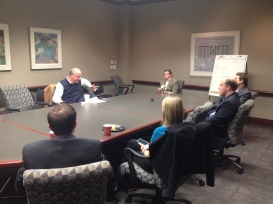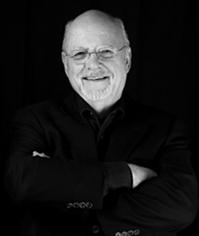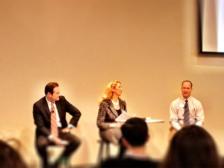Contributor: Mario J. Martinez
The current influx of positive news stemming from national employment data, the ongoing housing recovery, and America’s improving consumer sentiment has caused US treasury yields to spike in recent weeks – the expectation being that the Federal Reserve will begin to temper its bond purchases and cause interest rates to climb. The move in bond markets has been widely perceived as a long-expected inflection point signaling a slow, if steady, crawl towards more normalized bond yields. Owners of multifamily assets might infer the obvious first, cap rate expansion; that is, debt capital will adjust pricing in relation to bond interest rates and the cost of future debt service will make capitalization rates1 increase. The end result is that deals get more expensive to carry over time unless pricing expectations adjust (read, all else being equal, prices fall). This is no surprise to the investor community; what might be, is the operational improvements delivered on p&l’s over the longer term as a result of rising borrowing costs.
Multifamily investors tend to presume that rents rise with increases in interest rates and, notwithstanding a few outliers, this is correct2. The short-term nature of apartment leases acts as a hedge of sorts, making them more responsive to market forces. However, downward pressure on key consumers of multifamily product will continue to act as a barrier to entry for its substitute- single family homes- and support fundamental shifts in demand for rental product going forward.
According to the National Multi Housing Council, the majority of US households own their homes with only 32% opting to rent. Approximately 43% of renters are under 30 years old with roughly 80% of all renters being under the age of 40. This is largely driven by the perceived affordability of single family homes to their rental counterparts. The last few years have represented an incredible buying opportunity as both home prices and interest rates have fallen dramatically. Unfortunately, only a few were able to take advantage of depressed prices as a result of a decrease in wealth during the recession. While savings rates and wealth accumulation have demonstrated a recent uptick in the last 2 years, the data suggests the increases in wealth are coming from stock market-related investments and the recovery in housing prices. What is most notable about this trend is that the major consumer of rental product (the so-called Millennial Generation under 30) has less vested in both stock market equities and home wealth. What’s worse is that the major increase in single family affordability has been low interest rates (cheap debt) and not real wage growth.
THE ALBATROSS OF STUDENT DEBT
The Millennial Generation is having its personal balance sheet impacted by what seems to be an ever-increasing liability: student loans. The Federal Reserve Bank of New York recently released a report stating that since 2003 the average undergraduate loan balance carried after college has increased from roughly $10,649 to $20,326 in 2012; furthermore, the share of 25 year olds with student loans has increased from 25% to 43%. Student loan debt now represents the second largest household debt, surpassing auto loans and credit cards and trailing only mortgage balances. As of 2013, the average debt balance for undergraduates makes up roughly 44% of their expected first year’s salary (up from roughly 23% in 2003).
Put in perspective, under a standard repayment plan, a Stafford Loan currently carries an interest rate of 6.8% but is expected to decrease somewhere between the prior government subsidized rate of 3.4% and 6.8%. Assuming a 10-year standard repayment plan, an interest rate of 5.1%, and a $20,000 balance, the increased repayment represents roughly $113 more per month in principal and interest that is being paid today vs. students who graduated with roughly $10,000 less in loans circa 2003. That $113 equates to $22,000 in purchasing power under current mortgage offerings (e.g. 30-year term at 4.5% interest). In other words, the average undergrad has now decreased their home purchasing power in an amount equal to 10% of the median home price in the United States.
DECLINING REAL WAGES
Downward pressure is also being applied to millennials as a result of rising costs relative to expected wages. In 2003, the average undergraduate could expect to earn $43,000 post-graduation; that expectation has increased to just $46,000. If undergraduate wages had grown at the rate of inflation, a 2013 degree would fetch $54,438; instead, wage growth only expanded at 26% of the inflation adjusted expectation. College grads are thus having to adjust their lifestyles as rising costs take up a larger percentage of their take-home pay and wage-generated savings (read, down payments) take longer to build.
Student debt and decreased wages signal longer-term shifts for a key demographic that will turn to multifamily operators (to house them) for longer periods of time as they repair their balance sheets and build the foundations for a stronger future. Financial encumbrances have already begun to reverberate throughout the urban landscape as young Americans replace burdensome gym memberships with amenity-rich housing alternatives, opt to live closer to their place of employment, and limit their driving habits3. Rents remain a bargain relative to rising costs over the last decade with nationwide rents having grown only slightly less than the rate of inflation. Any immediate slowing in rental growth (as reported by multifamily data provider Axiometrics) is a healthy sign of last-minute home buyers rushing to take advantage of the vestige of home affordability, but that door is closing and current ebbs in rental growth will likely yield to future flows.
1. The rate used to value stabilized cash-flowing real estate assets as they were an annuity
2. Analyzing the historical rate of growth on 10-year treasuries against CPI rent growth on primary residence yields a correlation of .78 going back 50 years
3. Gasoline prices have increased at 3.9x the rate of inflation
 Contributed by Christina Byrnes, Legacy Property Group, LLC
Contributed by Christina Byrnes, Legacy Property Group, LLC












